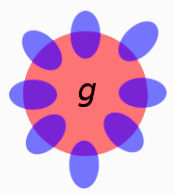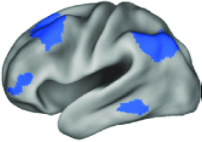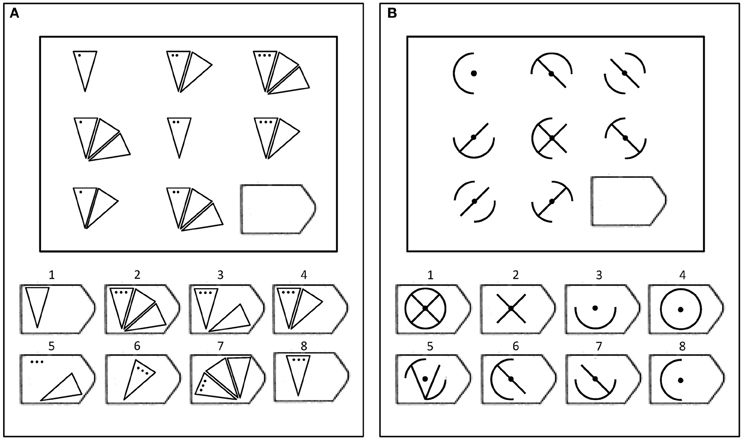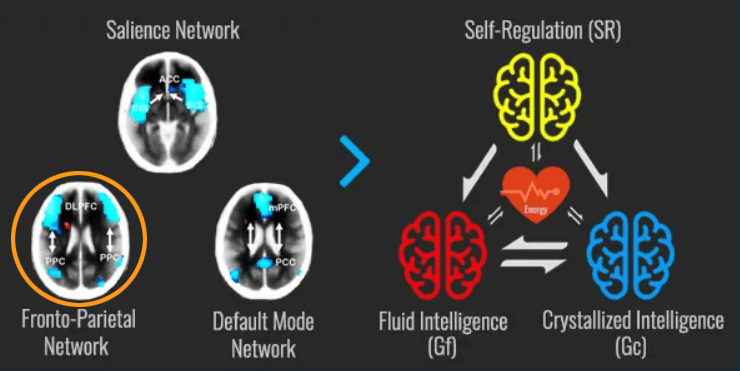What is g?
The IQ score you get from a standardized IQ test is a measure of g – so let’s first be clear about what this means.
The psychologist Charles Spearman in the early 1900s saw that scores across seemingly unrelated subjects – from history to languages to science – were all positively correlated. Scores tended to rise and fall together. Generally, if someone scored above average on one test, they would score above average on other tests. He called this the positive manifold.
 The positive manifold is a well-established fact. Statistically speaking, performance on all cognitively demanding tests with different content – from languages to math, from GCSEs or SATs to music theory exams – are positively correlated.
The positive manifold is a well-established fact. Statistically speaking, performance on all cognitively demanding tests with different content – from languages to math, from GCSEs or SATs to music theory exams – are positively correlated.
Spearman explained the positive manifold by a general ability factor (g) common to scores on all cognitive tasks. The terms IQ, general intelligence, general ability and g, are used interchangeably to refer to this common core.
What is fluid intelligence?
g can be measured by tests of general knowledge, but the best predictor of g is called fluid intelligence.
Fluid intelligence – also known as fluid reasoning and Gf – is your on-the-spot problem solving and reasoning ability, your ability to make inferences and find solutions, figure out or grasp abstract relationships, and learn efficiently.
Fluid intelligence is not dependent on your background knowledge, education or specific expertise, and cannot function on automatic pilot using previously learned habits. Your fluid intelligence underpins your ability to:
- make inferences and reason
- solve problems
- think abstractly
- understand complex ideas, analogies & relationships
- learn efficiently from experience

Your fluid intelligence depends on your working memory capacity. Your working memory is your ‘online’ mental workspace for goal-directed tasks in which newly combined information has to be held in mind and manipulated to ensure successful task performance – whether for problem solving, reasoning, comprehending or action planning.
Brain basis of fluid intelligence?
 Some brain regions are highly connected, acting as flexible network hubs. These have a central role in supporting integrated cognitive demands.
Some brain regions are highly connected, acting as flexible network hubs. These have a central role in supporting integrated cognitive demands.
Brain imaging studies have shown time and again that IQ-intensive, g-demanding tasks all depend on neural signalling in the prefrontal and parietal lobes of the brain.
More precisely g has been identified with a network hub called the Frontoparietal Network (FPN) which is densely connected to all other brain hubs, playing the central role in control and communication. The FPN is a global connectivity network in the brain that can transition to high energy-demanding, difficult-to-reach brain states – such as the knowledge or associations that may be needed when figuring out a difficult problem or learning new challenging material.
Professional IQ Tests of Fluid Intelligence
- RAVEN’S Advanced Progressive Matrices
- Concept Formation and Analysis Synthesis tests in the Woodcock-Johnson Tests of Cognitive Abilities
Example of fluid intelligence test questions:

G CODE : fluid intelligence (Gf)
Let’s now look at intelligence from a perspective of the G CODE brain training system.
Basic function
High energy, effortful problem solving and learning to efficiently minimize the error feedback (free energy/information entropy) we get from lack of understanding, complexity, uncertainty, lack of coherence or the gap between our goals and reality.
Bioenergetics
Information processing high energy demands, and access of ‘difficult-to-reach’ brain states with high energy demands, with solutions efficiently reducing metabolic energy demands as well as energizing metabolism through inferred incentives and value as a result of reasoning processes.
Optimal experience
Energy intensive, voluntary flow.
Core brain network
Frontoparietal network (FPN) with links to basal ganglia attention gating circuits.
Processing Modes
- Active inference: Inferring beliefs and mental models to explain data. FPCNB brain network.
- Explanatory inference: Inferring actions to attain expected / anticipated goals. FPCNA brain network.
Core Capacities
- Attention control (AC)
The capacity to select and sustain focus on goal-relevant information, filtering out irrelevant information and overriding automatic responses and distractions. Focus intensity is heightened via goal-directed motivational drive from the Self-Regulation network. Training selective attention improves:- Sensory discrimination
- Speed of processing
.
- Relational processing (RP)
- Relational definition. Defining novel relationships and associations as an integrated whole or ‘chunk’. This could be a perception, an insight, or a statement, definition or conclusion that is the result of an analytic reasoning process.
- Relation validation. Determining if a given option, example or action satisfies a predefined relationship, function, rule, etc.
- Relational reasoning. Information processing of abstract relations in a way that preserves the valid assignment of values to the consecutive arguments of the relation, regardless of what exactly are the relation, values, and arguments, to arrive at error/uncertainty reducing and value-adding conclusions. Includes:
- Deduction
- Induction
- Abduction
- Categorization
- Analogies
- Learning of the novel relationships, their applications and the outcomes of reasoning processes.
.
- Working memory (WM)
- Working memory maintenance. Holding relevant information in a limited capacity mental ‘workspace’ – via frontoparietal re-entrant loops, synchronous oscillations, or changes in synaptic strength.
- Working memory updating & interference control. Involving frontostriatal gating of new information with ‘cleaning the slate’ for information that is no-longer relevant.
- Task model in problem space– construction, maintenance and updating of plans, sub-goals and counterfactual options in overall task control.
- Active computation -maintenance and updating of focal information during insight, inference and rule application.
.
- Goal-directed memory retrieval (R)
The capacity to access & retrieve goal relevant information or skills from long-term memory (crystallized intelligence).
